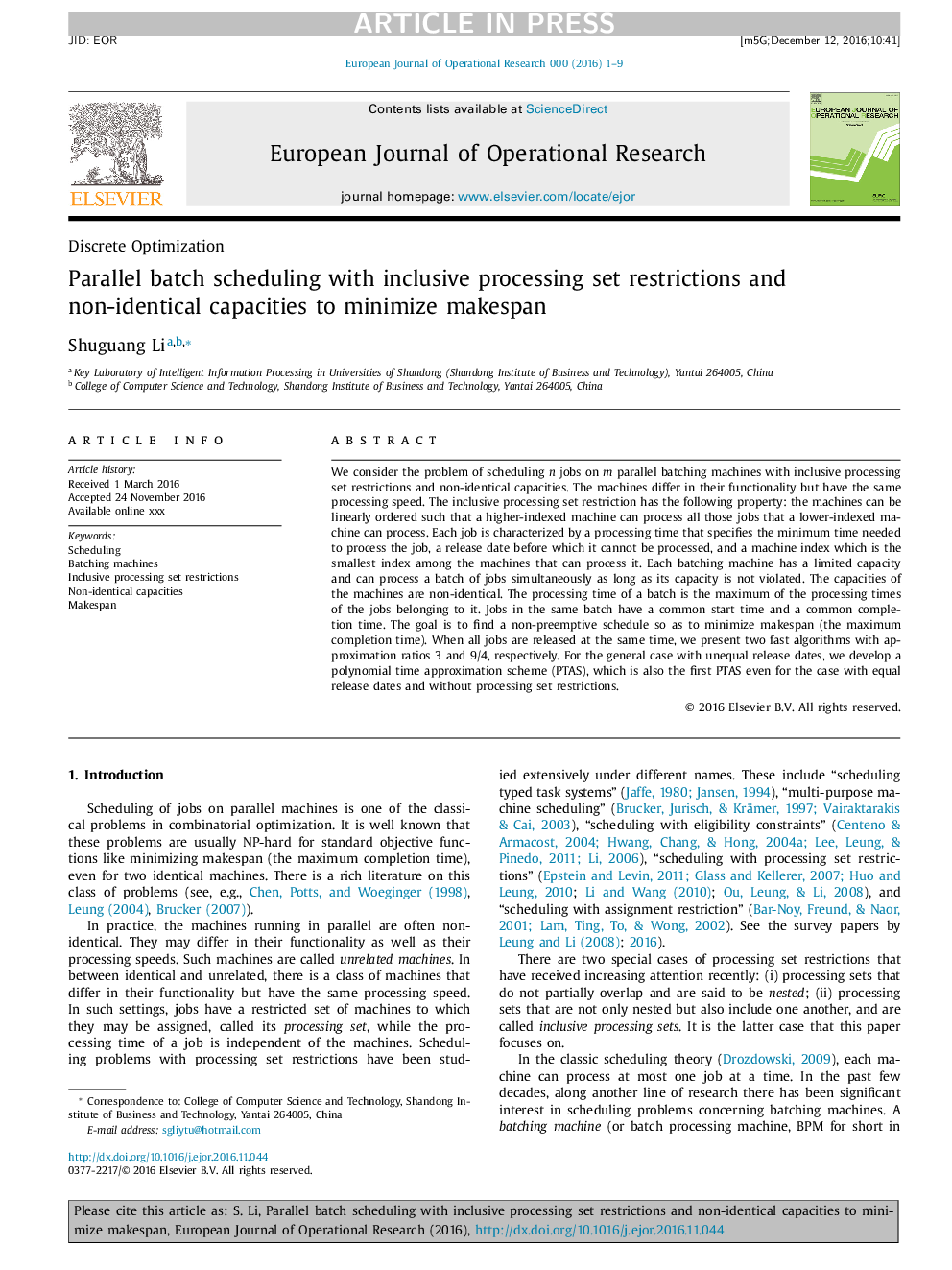| Article ID | Journal | Published Year | Pages | File Type |
|---|---|---|---|---|
| 4959874 | European Journal of Operational Research | 2017 | 9 Pages |
Abstract
We consider the problem of scheduling n jobs on m parallel batching machines with inclusive processing set restrictions and non-identical capacities. The machines differ in their functionality but have the same processing speed. The inclusive processing set restriction has the following property: the machines can be linearly ordered such that a higher-indexed machine can process all those jobs that a lower-indexed machine can process. Each job is characterized by a processing time that specifies the minimum time needed to process the job, a release date before which it cannot be processed, and a machine index which is the smallest index among the machines that can process it. Each batching machine has a limited capacity and can process a batch of jobs simultaneously as long as its capacity is not violated. The capacities of the machines are non-identical. The processing time of a batch is the maximum of the processing times of the jobs belonging to it. Jobs in the same batch have a common start time and a common completion time. The goal is to find a non-preemptive schedule so as to minimize makespan (the maximum completion time). When all jobs are released at the same time, we present two fast algorithms with approximation ratios 3 and 9/4, respectively. For the general case with unequal release dates, we develop a polynomial time approximation scheme (PTAS), which is also the first PTAS even for the case with equal release dates and without processing set restrictions.
Keywords
Related Topics
Physical Sciences and Engineering
Computer Science
Computer Science (General)
Authors
Shuguang Li,
